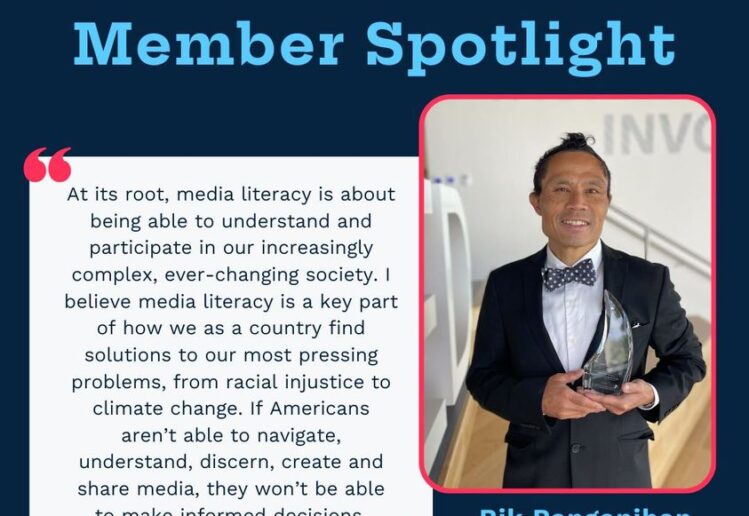I was so honored to be featured in the monthly spotlight of the National Association for Media Literacy Education.
From the post….
What do you do?
I support students in being well rounded digital citizens through fostering effective media literacy pedagogy. I am part of the professional learning team at KQED Education, specifically responsible for two programs, KQED Teach, our online learning platform for teachers, and the PBS Media Literacy Educator Certification by KQED. On a day-to-day basis, I spend a lot of my time supporting teachers taking our ten online media literacy courses, developing new professional learning resources and content, and reviewing PBS micro-credential submissions sent in by teachers from around the country. It’s really rewarding work!
What is your latest work or project in media literacy?
At KQED Education, we’ve learned a lot about how to support teachers in being confident and skilled media literacy educators. To expand the reach of that work, we launched in January 2023 a “Media Literacy Cohort Starter Kit.” This kit is designed to guide PBS stations around the country in creating local cohorts of teachers working on their media literacy skills. In this kit, we’ve compiled the best practices and tips from a dozen PBS station leads so any organizer can run their own local cohort in the most effective manner possible.
Why is media literacy important to you?
At its root, media literacy is about being able to understand and participate in our increasingly complex, ever-changing society. I believe media literacy is a key part of how we as a country find solutions to our most pressing problems, from racial injustice to climate change. If Americans aren’t able to navigate, understand, discern, create and share media, they won’t be able to make informed decisions.
What are you most excited about in the media literacy field?
I’m particularly excited about Critical Media Literacy as a schema and field of knowledge. I believe CML can enrich our media literacy education work by centering issues of racial equity, justice, and representation. As a person of color, I’ve already had powerful experiences supporting other educators of color in thinking about media literacy in their teaching practice. I’m hopeful we can integrate CML into all our offerings and more strategically confront systems of white privilege.
Why did you become a NAMLE member, what benefits do you see to membership, and how will it support your work?
NAMLE has guided the development of so much of our work over the years. NAMLE brings together the best thought leaders and practitioners in this field that help us ensure that our work is informed by robust research and academic thought and connected to the larger constellation of organizations and networks that work in this space. And being able to offer NAMLE membership to our PBS certified media literacy educators is a great perk!

